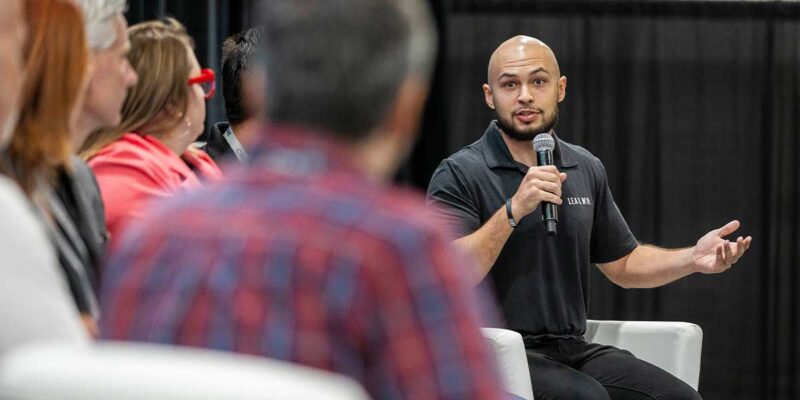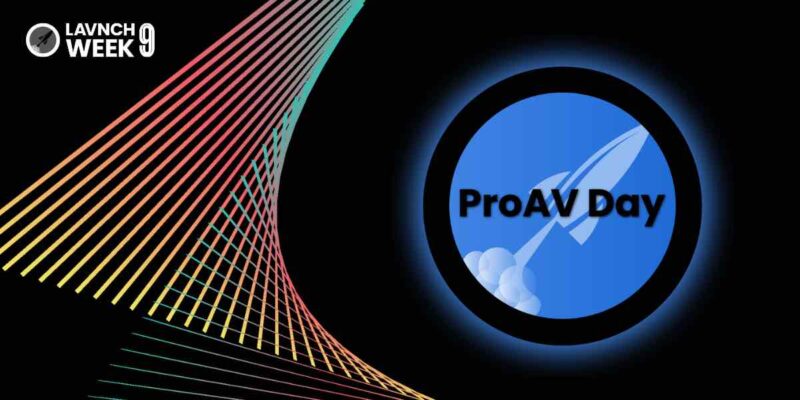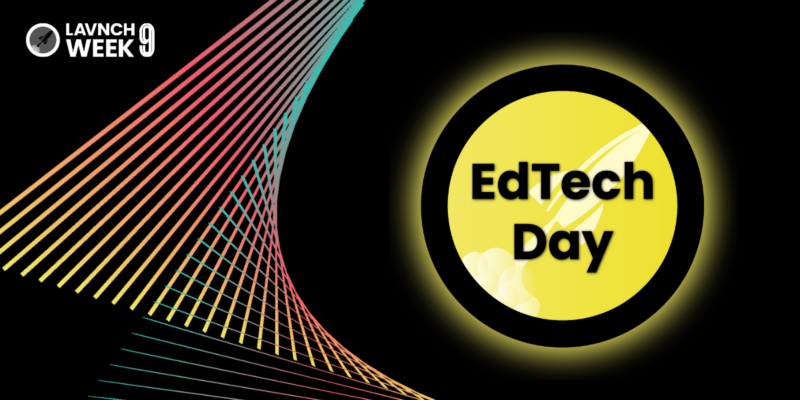5 Questions with David Danto for LAVNCH WEEK 2.0
David Danto is the director of emerging technology for the IMCCA, or The Interactive Multimedia and Collaborative Communications Alliance. David will be a speaker on UCC Day of LAVNCH WEEK 2.0 for our cleverly coined “LAVNCH & Learn.” I was excited to hear what he was planning to talk about (hint: how does UC&C drive adapting to permanent societal change?) for LAVNCH WEEK 2.0. So I asked him five questions to get a preview together for our readers. Here are his answers.

This is an interview with David Danto, as written by Leah McCann. It has been edited for clarity.
LM: David, I’d love to hear more about your background (of an impressive four decades!) in AV and your experience as the director of emerging technology for nonprofit IMCCA. Can you tell me a bit about the IMCCA and how you got involved?
DD: I began my career in the broadcasting space — as the director of engineering for Financial News Network (the precursor to CNBC) — and also built all of Bloomberg’s TV and radio facilities. In between those two, I created and ran NYU’s TV & Media Services department. After Y2K, I transitioned to enterprise multimedia, running global technology teams for Morgan Stanley, Lehman Brothers and JPMorgan Chase. After about 30 years in an end-user seat, I transitioned to the “sell” side of the industry as a consultant and analyst covering technology and collaboration. I moved on to my current role at Poly (director of UC strategy & research) a little more than a year ago. Throughout my career, I’ve always felt it important to give back to the industry, and I have been the IMCCA’s director of emerging technology for more than a decade. I believe we must provide expert, agnostic education to users of our technology so that the industry can grow and thrive. I’ve also been honored to serve as a presenter and/or judge for many technology associations (including NAB, InfoComm, CES and others). My broad experiences in broadcasting, film, theater, academia, business, enterprise technology and consulting have given me a fantastic perspective on where our industry has been and where it’s going.
LM: Impressive! So what will you be speaking about on UCC Day of LAVNCH WEEK 2.0?
DD: As our society begins to emerge from a horrific global pandemic, many AV and collaboration entities have been focusing on what we experienced (that remote working using UC&C tools works) and what we’re preparing for as we return to offices (caution, distancing, etc.). Those are important facets, but they miss the bigger picture. I, and a handful of others, have been advocating for remote working and smarter working for knowledge workers for years. Now that a huge majority of people were forced to experience that model, the genie is out of the bottle. We are living through a significant inflection in culture change that many do not realize. Our concepts of cities, offices, homes, education, entertainment, dining and more — supported by collaboration tools — will permanently change. My presentation will point out and describe these trends in a big-picture sense. Most organizations are focused on “the new normal” of how we’ll return to work while there is no effective treatment nor vaccine for COVID-19. What we really need to be focusing on for the future is “The Next Normal,” describing the period after there is a treatment/vaccine. What changes will be permanently sticking around.
LM: As the audience of UCC Day will largely be AV integrators (along with EdTech managers and some end users), what do you want this group to take away after you speak?
DD: It is difficult to realize significant cultural changes during a period when they are happening. Perhaps, when one looks back at this time period in five or so years, the shift will be more obvious. My goal in this presentation is to help people see the critical changes happening in real-time so that they can be at the forefront of the new models required for organizations to survive and thrive. Collaboration tools — now widespread and reliable — combined with ubiquitous high-speed internet connectivity will be the backbone to support society’s ability to adapt to these changes. Understanding what is and will continue to be important with our technologies and services will give viewers of this presentation an edge in their future activities.
LM: That resonates — I do think we’ve been in reaction mode to this point, which is understandable. So, keeping in mind all this is still relatively recent … has the AV industry, in your opinion, done a good enough job shifting its approach as the novel coronavirus has forced us to pivot? If yes, what are some of the good things that have come out of it? If not, how can AV integrators and tech managers pivot better?
DD: Please don’t make me drag out a soapbox and start preaching about our industry. ;~) I’m on record more times than even I care to be — discussing how poorly the AV industry has historically pivoted to the future. Most organizations didn’t see the current situation coming and didn’t prepare for it, and our industry’s “leadership” is squarely at fault. We’ve allowed ourselves to be seduced by a message we wanted to hear about our “fantastic experiences” as opposed to the messages we truly needed to hear about preparing for the future. As a result, most AV companies sat out the pandemic on the sidelines with no business — specifically at a time when we could have been our society’s champions supporting UC&C, remote collaboration and other specialties. We went for “sexy and fun” instead of a focus on “technology and IT.” It was a poor choice that I’ve compared to the fable of the Ant and the Grasshopper in my blog here. It’s long past time to evolve our industry to a technology- and science-based discipline, with a few “wow experiences” sprinkled in on the side in only the few circumstances where they are warranted. Most of us should never really be a “wow.” We’ll have successful businesses when we come through for our clients with solid, reliable, invisible technology choices that are only, truly realized by them in retrospect.
LM: So, based on what you said earlier, I take it that you don’t agree with the term “New Normal” as people talk about the new way we now operate with UCC technology? Is there a term you would use to describe this point in time instead (if there is one)?
DD: Many analysts and technologists have identified multiple phases of the pandemic and our exit past it. I don’t dispute any of them, but my focus has been on two specific phases post the shelter-in-place orders. As I mentioned above, I use “the new normal” to describe the period we’re in now — tentatively returning to work while there is no effective treatment nor vaccine for COVID-19 — and “the next normal” to describe the period after there is a treatment/vaccine. The first phase will be focused on caution, fear and safety — all the things surrounding our desire not to get sick from our actions. Huddle rooms and hot-desking/hoteling are a couple of examples of things not appropriate now, because we need to distance ourselves from others and we don’t want to share anything that might put our lives at risk. The second phase won’t be about caution but, rather, choice — where and how knowledge workers will choose to work and live now that remote working is a proven method with collaboration tools and broadband connectivity as the backbone to support this freedom.
Don’t miss David Danto at LAVNCH WEEK 2.0 on Monday, June 22; his LAVNCH & Learn session on UCC Day will offer a full version of the topics we discussed today. Register here, and visit rave.pub/LAVNCHweek2 to learn all about LAVNCH WEEK.





